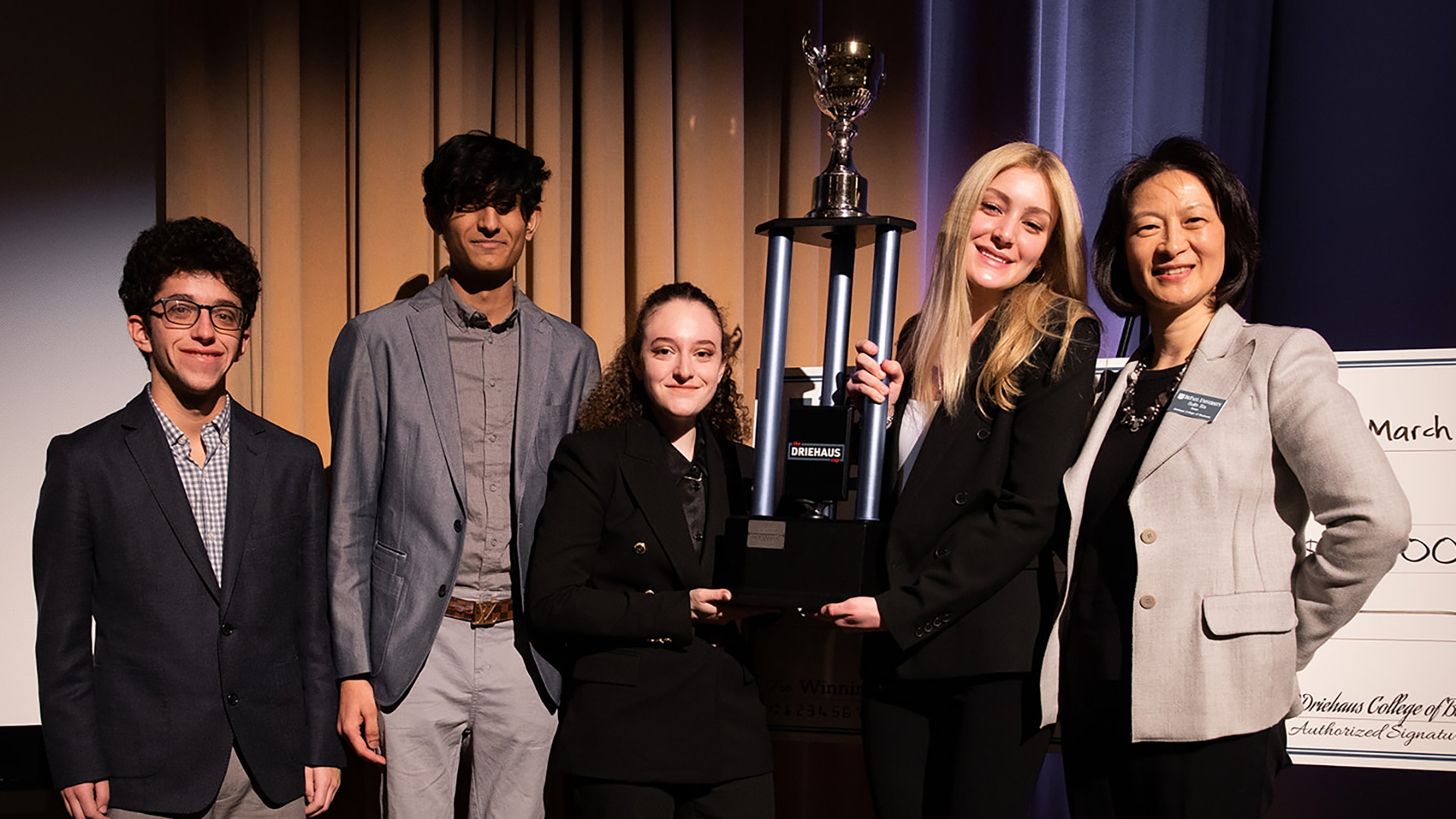
When Mariel Mudrik enrolled Business 101 in winter quarter 2023, she knew she wanted to launch a video production company some day. She was just figuring out how to get there.
By the end of the quarter, her team had competed in — and won — the Driehaus Cup. Mariel walked away with a newfound sense of confidence.
“The Driehaus Cup gave me more confidence to be a better business professional,” she says. “It taught me a lot about what it means to be a leader.”
Her team pitched Glucose Guard: a wearable glucose monitor that would alert users with vibrations, rather than the loud, disruptive alerts used in most monitors.
The original idea came from firsthand experience. A team member with Type 1 Diabetes knew that many with the condition hesitated to use glucose monitors in professional settings because alerts were so disruptive.
The pitch went through several iterations. Crowdsourced feedback confirmed the widespread need for a product with less disruptive alerts. Feedback from classmates led the team to make their product more accessible to low-income users.
A lesson in leadership
For Mariel, the process was a lesson in leadership.
“As a team, we came from diverse backgrounds,” she reflects. “Everybody’s ideas added a lot to the overall success of what we were doing.”
This experience, in turn, changed how Mariel understands leadership.
Before competing, “leadership meant reaching the goal no matter what,” she says.
Working with her team showed her that “leadership is much more about fostering a group environment where everybody feels empowered to share their ideas and where everybody feels like their ideas will be heard.”
From onstage to behind the camera
For Mariel’s team, this highly collaborative approach led Glucose Guard to win the winter 2023 Driehaus Cup. For Mariel, this lesson in leadership was just the beginning of a much longer journey.
Now a junior, Mariel is studying business administration at Driehaus with a minor in film and TV production. She is also the co-founder of DePhi Media, a video production company.
It’s a venture she jokingly refers to as “a bunch of freelancers in a trench coat.”
Put another way, her company takes a collaborative approach to video production. There are no set roles, she says. She finds clients, and she and her team work together to figure out how each of their individual skillsets fit into each project.
So far, many of those projects have been music videos for Chicago-area artists. Mariel hopes, though, to diversify their roster by branching out to corporate clients. Since the Driehaus Cup, she has been networking more. She and her team have been working on outreach to local firms. And she is working with the Coleman Entrepreneurship Center to explore other forms of support — including the possibility of applying to host an intern from DePaul.
She credits the Driehaus Cup with empowering her to take these steps. The takeaways are skills that can benefit students at any stage in their journey.
“I’m doing more projects,” she says. “I’m not embarrassed or feeling awkward about reaching out to people. It gave me that sense of confidence: I can be successful. I can accomplish what I set my mind to.”
This piece is part of Voices of the Driehaus Cup, a series of five interviews with students who competed in the first three Driehaus Cup competitions. In this series, you'll hear from a wide range of voices: first-year students and transfer students; seasoned entrepreneurs and students just embarking on their careers. One through-line: Competing in the Driehaus Cup helped all five students push themselves into the next phase of their career.